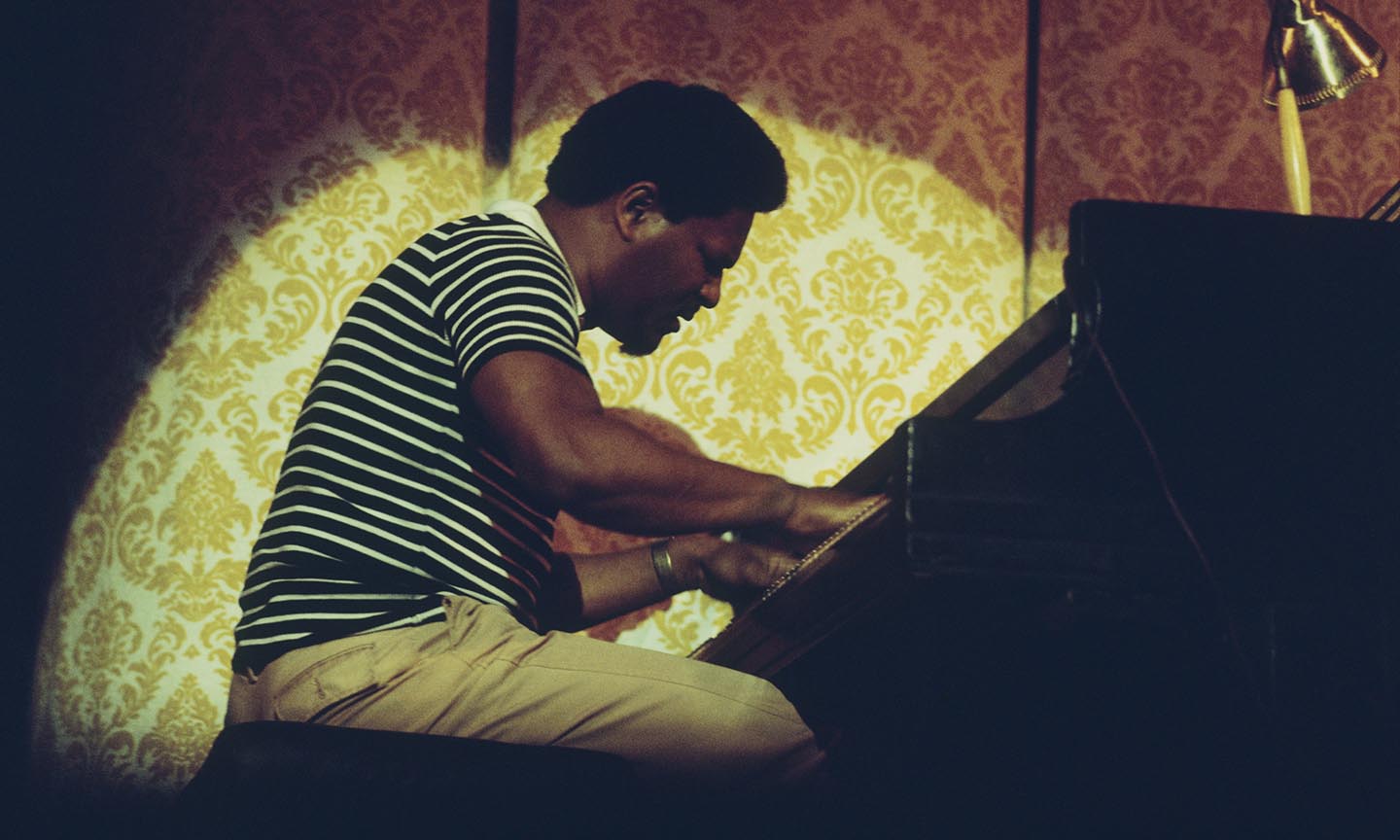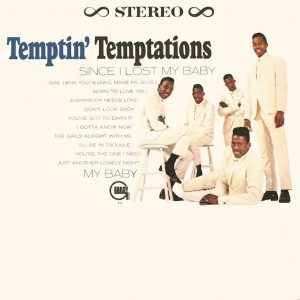“Bud Powell and Thelonious Monk were my two major influences, but I never made it a point to try to copy somebody,” jazz pianist McCoy Tyner told this writer in 2008. “I had some ideas of my own that I wanted to explore.” Beginning his career in 1960, Tyner underwent a thrilling musical journey that saw him start out with the late, great John Coltrane, playing on some of the saxophonist’s most famous albums, including the iconic A Love Supreme. “I learned so much from John just listening and being supportive,” remembered Tyner, who died on March 6, 2020. “He would go some places harmonically, and then I would say, OK, now I’ve got to play something that works against a sequence of things he was doing. And I think because he liked to experiment it helped me a lot.” Experiences like this infused the best McCoy Tyner albums, as the pianist explored his own creative paths.
After Coltrane’s death, in 1967, Tyner’s solo career gathered greater momentum. Recording first for Blue Note before switching to Milestone Records in the 70s, where he spent a long and fruitful period, Tyner forged an attacking, almost percussive style distinguished by his use of chords with prominent fourths.
Though regarded as an influential exponent of modal and spiritual jazz, Tyner never forgot jazz’s earthier side and blues roots. “Music is just a reflection of you and whatever you are,” he once said. “It comes out in your music.”
Reflecting the pianist’s work as a sideman and bandleader in his own right, these are the 20 best McCoy Tyner albums. Think we’ve missed any? Let us know in the comments section, below.
Listen to the best of McCoy Tyner on Apple Music and Spotify.
20: Live At Newport (Impulse!, 1964)
Though not as cathartically intense as the pianist’s potent 70s live albums, Enlightenment and Atlantis, this onstage snapshot of Tyner and his band, captured at the Newport Jazz Festival on July 5, 1973, offers an in-concert summation of his early solo years. “Newport Romp,” specially written for the festival, is a jaunty, joyous piece of hard bop featuring saxophonist Charlie Mariano and trumpeter Clark Terry. Notable, too, is “Monk’s Blues,” a swinging tribute to jazz iconoclast Thelonious Monk.
Essential track: “Monk’s Blues”
19: The Turning Point (Verve/Birdology, 1992)
In November 1991, Tyner, then 52, assembled a 15-piece big band, which offered dynamic reworkings of three of his signature songs (“Passion Dance,” “High Priest,” and “Fly With The Wind”) alongside three tastefully-executed jazz standards. The arrangements are deft and inventive, and Tyner, attacking his piano with venom, more than holds his own against the horns and woodwind. Of the standards, a delicate rendition of “Angel Eyes” stands out.
Essential track: “Passion Dance”
18: Echoes Of A Friend (Milestone, 1973)
Recorded in Tokyo and released via the Victor company in Japan before being issued by Milestone in the US, Echoes Of A Friend is a collection of unaccompanied Coltrane-inspired piano music. An intimate solo recording, the album includes ornate, heavily embroidered versions of Coltrane’s “Naima,” “The Promise” and “My Favorite Things.” The record’s back cover showed a picture of Tyner and Coltrane together, accompanied by the words: “This is a dedication to a man, a friend, and a teacher – John Coltrane. Many are called, but few are chosen.”
Essential track: “Naima”
17: Today & Tomorrow (Impulse!, 1964)
Tyner’s fourth outing for Impulse! put him in the studio with fellow Coltrane quartet members, bassist Jimmy Garrison and drummer Elvin Jones, along with a three-horn frontline (John Gilmore, Frank Strozier, and Thad Jones). A solid collection of hard bop and modal jazz, Tyner was only 24 when he recorded the album, but he was already showing a maturity and sense of vision beyond his years.
Essential track: “Contemporary Focus”
16: Reaching Fourth (Impulse!, 1963)
This album, the second of Tyner’s career, released when he was 24 years old, is a rewarding trio session featuring bassist Henry Grimes and drummer Roy Haynes. The three musicians gel telepathically on two original tunes and three standards; standouts include the turbo-charged title song, the swinging “Old Devil Moon” and “Blues Back,” which begins as an after-hours ballad before evolving into a driving piece peppered with pungent piano solos.
Essential track: “Blues Back”
15: Fly With The Wind (Milestone, 1976)
Tyner used a larger compositional canvas for this ambitious project, on which he arranged four original tunes as well as one standard (“You Stepped Out Of A Dream”) for an orchestra conducted by William Fischer. Flautist Hubert Laws also guests, adding decorative touches to Tyner’s material, which ranges from cinematic tone poems (the title track) to Latin music extravaganzas (“Salvadore De Samba”), delicate ballads (“Beyond The Sun”), and frenetic uptempo pieces (“Rolem”). Drummer Billy Cobham and bassist Ron Carter offer sterling support throughout.
Essential track: “Fly With The Wind”
14: Sahara (Milestone, 1972)
Tyner’s first album for producer Orrin Keepnews’ Milestone label was this barnstormer, a quartet session that also found the pianist dabbling with the flute, koto (a Japanese stringed instrument), and percussion. The opener, “Ebony Queen” is a searing modal tone poem featuring incendiary sax work by Sonny Fortune, while “A Prayer For My Family,” with its cascading piano runs, shows Tyner’s dazzling keyboard pyrotechnics.
Essential track: “Ebony Queen”
13: Horizon (Milestone, 1980)
Tyner led a seven-piece band on this album, which included violinist John Blake, whose distinctive sound graced four of Horizon’s five tracks. Blake also contributed two tracks, the achingly beautiful ballad “Woman Of Tomorrow” and the more explorative modal piece “Motherland,” but the album’s cornerstone is Tyner’s self-written title track, a Latin-inflected 12-minute piece boasting a memorable main theme and stunning improv by Tyner, Blake and soprano saxophonist Joe Ford.
Essential track: “Horizon”
12: Extensions (Blue Note, 1973)
Recorded in 1970 but shelved until 1973, by which time Tyner had left Blue Note for Milestone, Extensions finds Tyner in stellar company mining a deep spiritual jazz vibe. Alice Coltrane guests on harp on three of the album’s four modal-flavored songs, augmented by a quintet that includes jazz luminaries Wayne Shorter, Gary Bartz, Ron Carter, and Elvin Jones. Tyner’s penchant for the blues is reflected by the astringent “Survival Blues,” which highlights the pianist’s knack for percussive textures.
Essential track: “Message From The Nile”
11: Trident (Milestone, 1976)
Though accompanied solely by bassist Ron Carter and drummer Elvin Jones, Trident isn’t a conventional trio album. That’s because Tyner plays harpsichord and celesta on some tracks, imbuing the record with unique sonic properties. He pays homage to Coltrane by including a combustible version of the saxophonist’s “Impressions”; Thelonious Monk’s genius is acknowledged with a delightful rendition of “Ruby, My Dear”; Tyner’s dynamic drummer inspired the song “Elvin (Sir) Jones.”
Essential track: “Celestial Chant”
10: Infinity (Impulse!, 1995)
Tyner rejoined a rejuvenated Impulse! label in 1995 for this stunning album, on which tenor saxophonist Michael Brecker joins him and his then road trio (bassist Avery Sharpe and drummer Aaron Scott). Infinity’s centerpiece is a blistering 11-minute version of Coltrane’s “Impressions,” which finds Brecker blowing his instrument with ferocity. He impresses, too, on the mellow opener, “Flying High,” and the uplifting and anthemic “Changes.” One of Tyner’s best late-phase albums.
Essential track: “Impressions”
9: My Favorite Things (with John Coltrane; Atlantic, 1961)
The way Coltrane transformed a number from the Broadway musical The Sound Of Music into a waltz-time manifesto for modal jazz was notable for its use of the then rarely heard soprano saxophone. McCoy Tyner’s piano also made a significant contribution to the tone and style of the piece, from his syncopated vamp chords, built on fourth intervals, to his long sparkling solo passage, which blends delicacy with irresistible propulsion.
Essential track: “My Favorite Things”
8: Time For Tyner (Blue Note, 1968)
The presence of vibraphonist Bobby Hutcherson brought different tonal colors to this, Tyner’s third Blue Note outing, with one half devoted to original tunes and the other half focusing on standards. Bassist Herbie Lewis and drummer Freddie Waits provide a simpatico, well-oiled rhythm section over which Tyner and Hutchinson combine beautifully. The fiercely energetic opener, “African Village,” is an archetypal slice of late 60s modal jazz, while the closing solo piano piece, “I’ve Grown Accustomed To Her Face,” illustrates Tyner’s virtuosity with its flamboyant, rhapsodic flourishes.
Essential track: “African Village”
7: Sama Layuca (Milestone, 1974)
One of Tyner’s best 70s albums is this one, a five-track record on which he surrounded himself with eight other top-flight musicians, among whom were vibraphone maestro Bobby Hutcherson, saxophonists Gary Bartz and Azar Lawrence, and percussionist James Mtume. Though the music flows with a bristling, raw intensity (especially on the Latin groove “La Cubana”), Tyner is still able to conjure moments of burnished lyricism, as exemplified by “Above The Rainbow,” a beguiling duet with Hutcherson.
Essential track: “La Cubana”
6: A Love Supreme (with John Coltrane; Impulse!, 1965)
As a member of Coltrane’s quartet between 1961 and 1965, McCoy Tyner appeared on many notable albums by the saxophonist. None were as significant, however, as this one, a four-part hymn to the creator, which gave birth to the notion of spiritual jazz. Tyner’s piano, confident but never intrusive, offers a stable but fluid platform for Coltrane’s earnest saxophone meditations. Tyner was the apostle to Coltrane’s Jesus.
Essential track: “Acknowledgement”
5: Atlantis (Milestone, 1975)
Recorded at Todd Barkan’s Keystone Corner venue in San Francisco during the late summer of 1974, this album affirmed both Tyner’s dynamism and charisma as a live performer. Leading a quintet (Azar Lawrence, Joony Booth, and Wilby Fletcher, augmented by percussionist Guilherme Franco), Tyner serves up an epic modal groove in the shape of the title track, which offers a compelling example of his forthright, muscular style. Though noted for the power and intensity of his music, the standard “My One And Only Love” reveals that Tyner could play with a quiet sensitivity when he chose to.
Essential track: “Atlantis”
4: Enlightenment (Milestone, 1973)
This live double-album, Tyner’s fifth outing for Orrin Keepnews’ Milestone imprint, captures the power, intensity and sheer majesty of the pianist firing on all cylinders in an in-concert setting. Recorded at the 1973 Montreux Jazz Festival, it finds Tyner accompanied by saxophonist Azar Lawrence, bassist Joony Booth and ex-Weather Report drummer Alphonse Mouzon, who create a maelstrom of sound underneath the pianist’s passionate outpourings.
Essential track: “Walk Spirit, Talk Spirit”
3: Expansions (Blue Note, 1968)
On his fourth and often overlooked album for Blue Note, Expansions, Tyner broadened his sonic horizons by fronting a septet. It included tenor saxophonist Wayne Shorter, altoist Gary Bartz, rising Newark trumpet maven Woody Shaw and Miles Davis Quintet bassist Ron Carter. The music is more challenging than on Tyner’s previous releases, in places veering from advanced hard bop to an avant-garde style. An eerie Eastern feel pervades “Song Of Happiness,” on which Shorter plays clarinet and Bartz blows a wooden flute.
Essential track: “Smitty’s Place”
2: Tender Moments (Blue Note, 1967)
Recorded in December 1967, five months after John Coltrane’s death, this, Tyner’s second Blue Note album, featured a nine-piece ensemble on five of its six self-written tracks. Contributing are six horn players, including Blue Note’s star trumpeter, Lee Morgan, plus saxophonists James Spalding and Bennie Maupin. The brisk opener, “Mode For John,” marks Coltrane’s passing, characterized by an infectious, interwoven horn theme. Spalding plays the flute on the charming, African-flavored “Man From Tanganyika.” The album also contains one of Tyner’s best ballads, the beautifully orchestrated “All Our Yesterdays.”
Essential track: “Man From Tanganyika”
1: The Real McCoy (Blue Note, 1967)
Topping our list of the best McCoy Tyner albums is this, his first album recorded after leaving the John Coltrane Quartet. Also his debut for Blue Note, The Real McCoy found the pianist hooking up with fellow Coltrane alumnus drummer Elvin Jones, together with saxophonist Joe Henderson and bassist Ron Carter. The set’s five tracks, all original compositions, range from the full-on modalism of the propulsive “Passion Flower” to the softly meditative “Search For Peace” and down-home strut of “Blues On The Corner.”
Essential track: “Blues On The Corner”
Looking for more? Discover the best John Coltrane albums.




